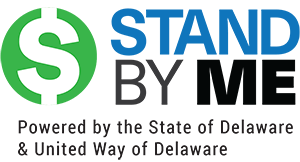
Low-Income Retiree Gets Financial Coach
Every state should have what Delaware has: a program that helps low- and moderate-income seniors find a financial survival strategy.
 Since it opened in 2013, the program, Stand by Me 50+, has connected more than 2,300 older residents – mostly retirees – with federal and state aid programs, advised them of Social Security’s rules, and helped them pay medical bills or eliminate debt. The services are free.
Since it opened in 2013, the program, Stand by Me 50+, has connected more than 2,300 older residents – mostly retirees – with federal and state aid programs, advised them of Social Security’s rules, and helped them pay medical bills or eliminate debt. The services are free.
Kathleen Rupert, a financial coach and head of the organization, helped one man in his 70s pay off $13,000 in debt. Another retiree doubled his income from Social Security after she determined that he was eligible for his late wife’s $1,700 benefit. About 44 percent of the program’s clients have monthly income of $1,500 or less.
“We go wherever the need is – to senior housing, senior centers, community centers, libraries,” she said. “We set up appointments at Panera Bread or Hardee’s – wherever they’re available.”
Squared Away interviewed three clients who said the financial solutions they got from the program have given them peace of mind. Here is the first client’s account of how Stand by Me 50+ helped her.

Peggy Grasty retired in 2010 after two decades at Elwyn, a non-profit social services agency where she was a supervisor and worked with people with mental disabilities. She continues to help people – voluntarily. The 71-year-old takes other retirees under her wing who need assistance because they have trouble walking or aren’t as capable as her.
She initially contacted Stand by Me because she couldn’t make ends meet. She has a comfortable, federally subsidized apartment in Wilmington, Delaware. But her income is limited to a $1,500 Social Security check and a $53 pension from a job long ago waxing floors and driving a bus for a Pennsylvania middle school.
Stand by Me got help for Grasty through two programs: federal SNAP food stamps and a Delaware non-profit that pays low-income residents’ medical bills. By doing this type of work, the program addresses a real need. Although myriad financial assistance programs are available for low-income workers and retirees, they are frequently unaware of the programs, assume they don’t qualify, or may need help navigating the application process.
Grasty, a great grandmother to seven children, was widowed in 2018. Before her husband died, the couple tried to get food stamps but were told their income was $2 above the program limit. She applied again recently but was “getting the runaround.” Rupert, her financial coach, filed a new application online and instructed Grasty to take her financial documentation to a state government agency that administers the food stamp program. The benefit started last summer – $20 a month – and she is grateful for it.
“A lot people say, ‘$10 or $20 – the government might as well keep it,’ ” she said. But her philosophy is, “take that $20 and use it to the fullest advantage that you can.”
After the food stamps were in place, Rupert applied on Grasty’s behalf to the non-profit, Christiana Care, that pays medical bills for people in need – in this case, a PET scan that wasn’t fully covered by Medicare. Rupert said the program agreed to erase her client’s medical debt for the past year and provide her with free medical services for one year. They will apply again next year.
Stand by Me has helped Grasty tremendously – so much so that she’s become its unofficial ambassador. She estimates she’s recruited about 10 people to the program because she wants them to feel the same sense of relief about their finances that she does.
“I don’t lose sleep. I lay down peaceful,” she said. God “will supply all your needs.”
In next Tuesday’s blog, Clifton Seale and Charles Gilmore, a retired couple who have been together 35 years, explained how they paid off $40,000 and stabilized their modest finances.
Squared Away writer Kim Blanton invites you to follow us on Twitter @SquaredAwayBC. To stay current on our blog, please join our free email list. You’ll receive just one email each week – with links to the two new posts for that week – when you sign up here. This blog is supported by the Center for Retirement Research at Boston College.
Comments are closed.







Sounds like a great program for those in retirement years already, but teaching kids at both the high school and college level how to invest in a buy and hold strategy would help them 30 to 40 years of working to save more adequately. It is not that difficult to learn the basics.
This sounds like a great program!!!
Compass Working Capital offers financial advice to the people in Section 8 housing in the Boston area and Philadelphia. Each client enters a 5 year program that helps them budget, save for emergencies and for something else they want to accomplish (e.g. more training or capital to open a business). They also help improve each client’s credit scores. etc. and give advice on student loans. They refer clients to VITA so they take advantage of the Earned Income Tax Credits.
I continue to follow your blog. You do such great work. Press on.
Sincerely,
Ted Leber
Medical debt is the worst because it’s a doctor telling us we should spend the money.